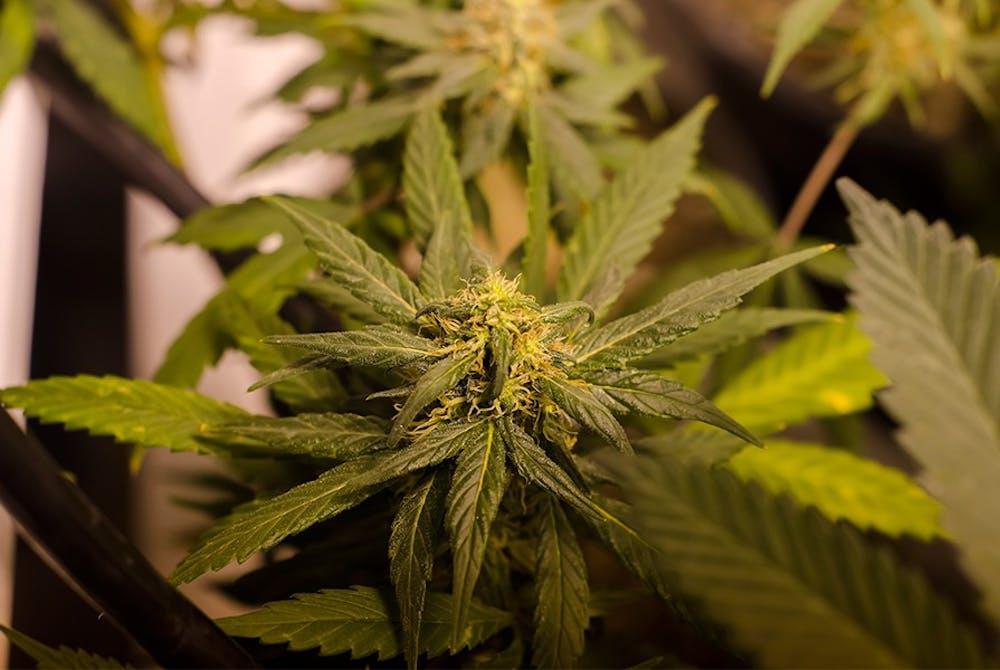After dozens of election cycles, Ohio has earned its name as a swing state, but now
it is ready to test the limits of that title on the issue of legalizing marijuana. To date,
medical marijuana has been legalized in 20 U.S. States plus the District of Columbia,
and Ohio might be joining this list after the 2014 election, according to an article on
Cantonrep.com.
However, for this to even be possible, the state must first overcome a number of
milestones. In order to have the issue of medicinal marijuana on the 2014 ballot, the
organizations vying for legalization, such as the Ohio Rights Group, must obtain
approximately 385,000 signatures of registered Ohio voters, according to an article on
Morningjournal.com.
If it comes down to a vote during the November elections, statistics suggest the
amendment is likely to pass. In the most recent CNN poll, from January 2014, 55 percent
Enjoy what you're reading?
Signup for our newsletter
of Americans believe the use of marijuana should be made legal. This has jumped 12
percent since the same poll was issued in 2012 and is up 20 percent from when the poll
was released in 2008.
In a survey of 100 Miami University sophomores, the responses also favored marijuana
legalization. 89 percent supported legalization for medicinal and/or recreational purposes
or had no opinion on the matter, leaving 11 percent of those polled against legalization.
Miami sophomore Andrew Jennings (name changed to protect against legal
repercussions) provided several reasons why he believes it should be legalized.
"Economically, it makes a lot of sense," he said. "A lot of people are in prison for it - for
something that isn't even harmful - and that's costing us tax money. [Legalizing] it would
help us get out of some debt. Plus, it's natural and less harmful than alcohol."
Other students, whose responses were kept anonymous, left comments on the survey.
"I think that as part of our rights as Americans, the government should uphold its duty to
allow people to experiment with their minds," one student said. "Weed has less harmful
effects - AKA does not cause addiction, like tobacco. Hemp is a superfood! The crop can
be used to stimulate economic benefits as well as bring local businesses success."
Not all Miami students agreed - or all Americans, for that matter. Many people are still
strongly opposed to the use and sale of marijuana. One example is Miami sophomore
Peyton Little (name changed to protect against legal repercussions).
"The consequences that come with [marijuana] - the health issues, the relationship
strains, and just seeing what it does to people - weigh down the benefits," Little said. "I
think if they legalize it, it won't help the issue. It will just make all of that worse."
A new poll from CNN showed 73 percent of Americans view alcohol use as more
dangerous than marijuana use. Jennings took a similar stance.
"From personal experience, I would say alcohol is way worse," he said. "I make a lot
more bad decisions when I'm drinking than when I'm smoking. It's easier to become more
belligerent and reckless when I'm drinking. When I'm smoking I would rather just chill,
but when I'm drinking I like to get rowdy."
On Miami's campus, the problem of marijuana use pales in comparison to that of
underage drinking, according to Sergeant Jon Varley of the Oxford Police Department.
"For Oxford, there's quite a bit of marijuana," he said. "We see it probably every
weekend. Obviously it's not as big of an issue as the alcohol, though."
The charges for marijuana and alcohol-related offenses are also very different from one
another.
"In the past couple of years it has changed [for marijuana offenses]," Varley
said. "Marijuana has been decriminalized - meaning unless you have a substantial
amount, you aren't going to go to jail, it's just a small fine. They also basically
decriminalized paraphernalia for it, like pipes. It's just a minor misdemeanor citation."
In Ohio, possession of and/or cultivation of less than 100 grams (3.5 ounces) of
marijuana is punishable as only a minor misdemeanor, which has a maximum fine
of $150 and no jail time, according to mpp.org. (For comparison, other crimes in
Oxford of the same charge include failure to shovel snow from the sidewalks of one's
personal property). Beyond that quantity of marijuana, though, the severity increases
exponentially.
"Selling it is a different story," Varley said. "That can be a felony for trafficking.
Depending on the quantities, that can get you prison time."
In a survey of the same 100 Miami students, just over half admitted to smoking marijuana
on a regular basis. Of these, 87 percent also admitted to purchasing their marijuana from
another Miami student. Varley said they have assumed as much but cannot always track
it very easily.
"It's hard to say because some people buy it from a friend who brought it from home,
someone who maybe had gone home for the weekend and came back with a supply," he
said. "It's hard to say if it's one kid or a group of kids distributing it in Oxford. There's a
lot of different ways people get it, not necessarily through a dealer so much as a friend or
an acquaintance."
As for Miami's nightlife and partying atmosphere, Varley said he does not expect to see
any significant change in the police enforcement if marijuana does become legalized.
"It would completely depend on the laws that came along with it, such as the age limit,"
he said. "I think it would become very similar to the alcohol policies and enforcements."
Varley also said he would not be surprised if, in the not-too-distant future, marijuana does
indeed become legalized.
For more information on the Ohio Rights Group and their petition to legalize the Ohio
Cannabis Rights Amendment (OCRA), visit http://www.ohiorightsgroup.org.




